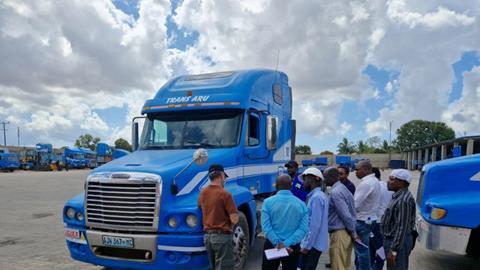Transport charity Transaid has helped to successfully train more than 450 HGV drivers in Mozambique over two years, with 100% of those surveyed, following the training, confirming the initiative has helped them become better drivers.
Transaid’s involvement in the project was part of the initiative Employment and Skills for Development in Africa (E4D), which was funded by the German and Norwegian governments, with further support from Appload and EnergyWorks.
The project saw 31 driver trainers trained – more than three times the initial target – including two women. Collectively, this group went on to deliver training to 452 HGV drivers over the initial two-year period.
Three specially tailored training courses were offered to drivers, including one focused around transporting cargo safely, and two specifically on defensive driving – with a mix of classroom and practical on-road instruction.
The National Authority for Professional Education is now working to combine the three courses as one registered course.
In addition, the training institutions and driving schools are actively marketing the new training to drivers and businesses.
The courses were very well reviewed by employers. A spokesman for one of the companies to benefit, said: “The material was well cultivated to match feedback from local technical committee members to ensure that the instruction matched what was most needed.”
A representative for Usalama, a local driving school, said: “We have been able to better establish ourselves in the market with our clients, especially large suppliers for whom road safety is paramount.”
The drivers also had positive responses about the course. One said: ”I am now more cautious on the public road. I fully comply with the traffic rules, and I really feel like a professional, capable of seeing and analysing what is happening around me better than before.”
Caroline Barber, Transaid chief executive, said: ”Prior to this project, professional HGV driver training was limited in Mozambique, with no set standard, and largely focused on rapid acquisition of driving permits. Drivers tended to be reliant on peer-to-peer or self-learning methods, with little formal driver training available.
“To launch this project, and surpass our training goal, is a fantastic achievement for everyone involved – and we’re confident that the programme will continue to help Mozambique’s drivers to be safer on the road.”

















